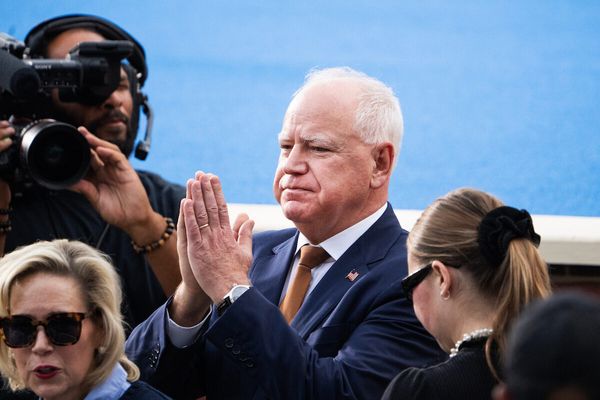Cryptocurrency executives joined lawmakers in Washington, D.C. on Tuesday to advocate for the passage of a bitcoin strategic reserve act, according to a report from The Block. Attendees include Strategy cofounder Michael Saylor and Mara Holdings CEO Fred Thiel.
Over a dozen members of the crypto industry are meeting at a roundtable on Capitol Hill, hosted by Sen. Cynthia Lummis (R-WY) and Rep. Nick Begich (R-AK). The pair cosponsored legislation that aims to officially establish a federal bitcoin strategic reserve, and could include a path for the U.S. to purchase 1 million bitcoins.
Bitcoin Act Strategy
Sen. Lummis in March reintroduced the Boosting Innovation, Technology and Competitiveness through Optimized Investment Nationwide Act (Bitcoin Act), which builds on President Donald Trump's executive order to establish national crypto holdings.
That order, issued March 6, called for a bitcoin strategic reserve and a separate digital asset stockpile compiled of other cryptocurrencies. Under President Trump's order, the caches are to be formed largely from assets seized by the Treasury and other federal departments. The reserves have been instructed to find "budget-neutral" ways in which to acquire or otherwise own assets, but not to sell them — to simply hold them, like a digital Fort Knox. Other strategies include remittances on net earnings from Federal Reserve Banks and gold certificates, according to the bill.
In addition, the Bitcoin Act includes language to acquire 1 million bitcoin over a five-year period.
Other crypto executives attending the roundtable include Bitdeer Chief Strategy Officer Haris Basit, Riot Senior VP of Public Policy Brian Morgenstern, and CleanSpark CEO Matt Schultz.
Fed Rate Decision, Potential Government Shutdown
The meeting comes ahead of the Federal Reserve's Wednesday policy announcement. Bitcoin climbed slightly Tuesday to trade around $115,300 as the markets estimate a 96% chance of a 0.25 percentage point cut.
Meanwhile, President Trump pushed Republicans to vote on a stopgap funding plan to keep the government operating through late November. The U.S. government faces a potential shutdown on Oct. 1. The full-year continuing resolution that passed in March expires on Sept. 30.
You can follow Harrison Miller for more stock news and updates on X/Twitter @IBD_Harrison







